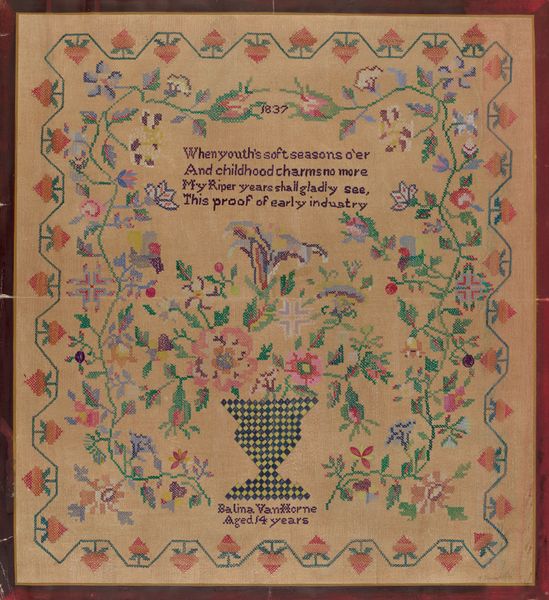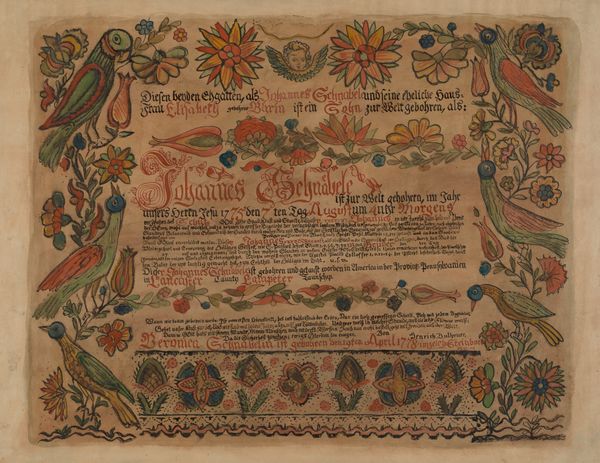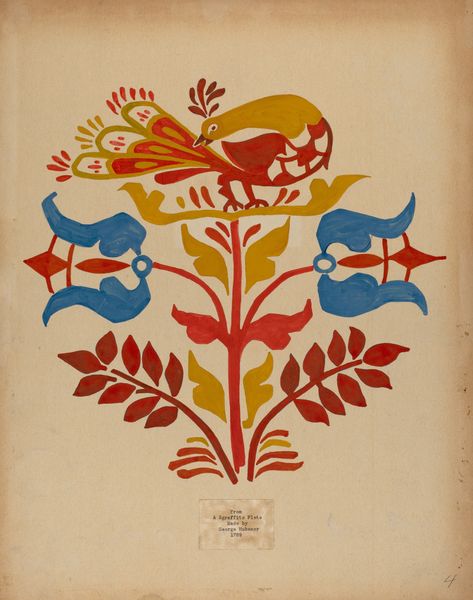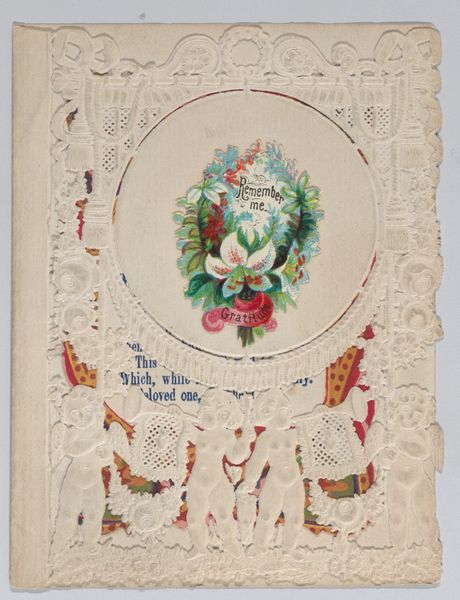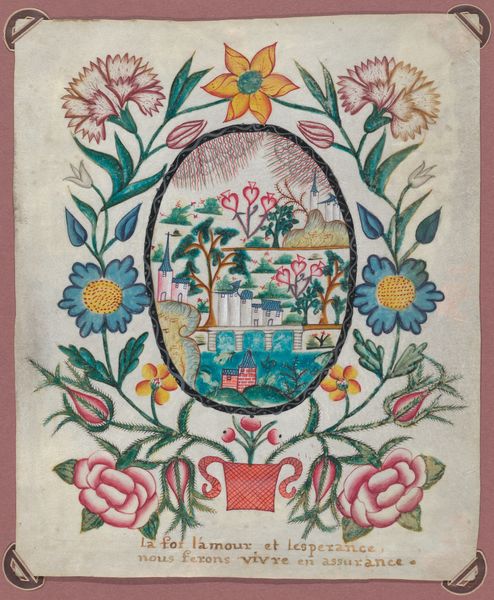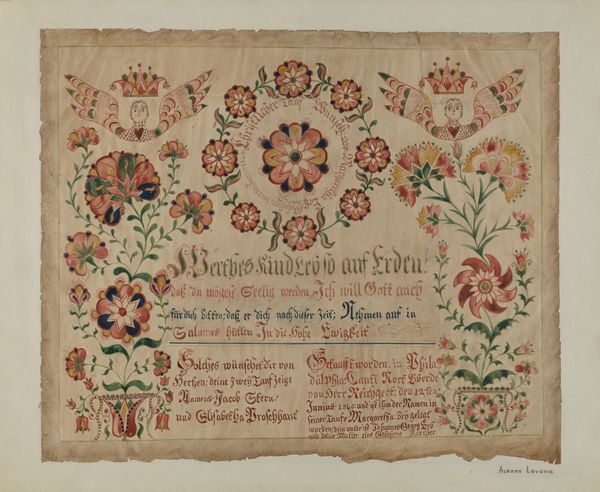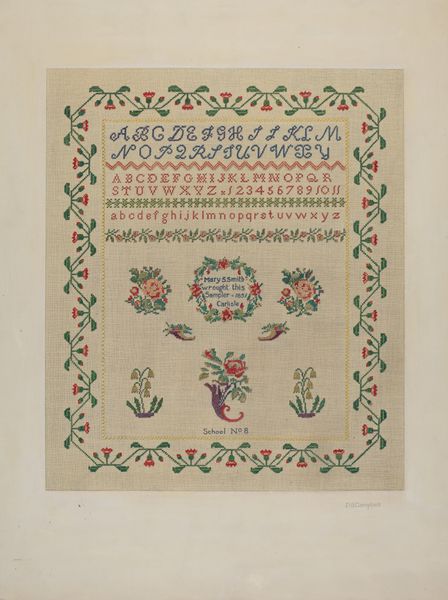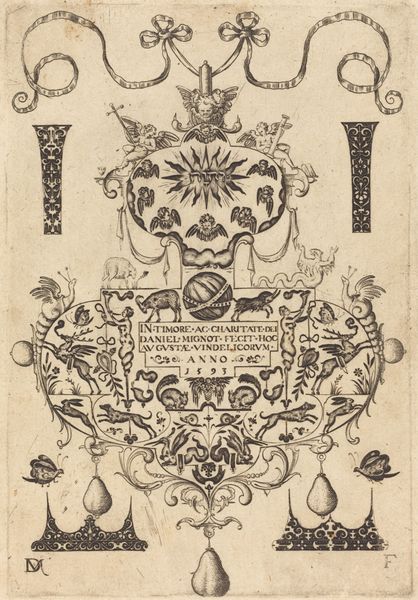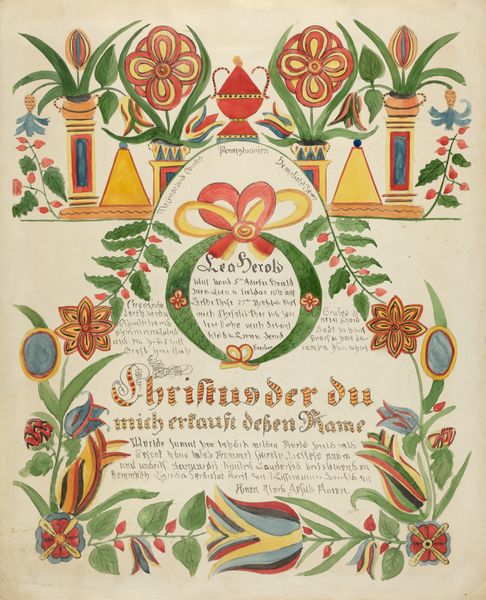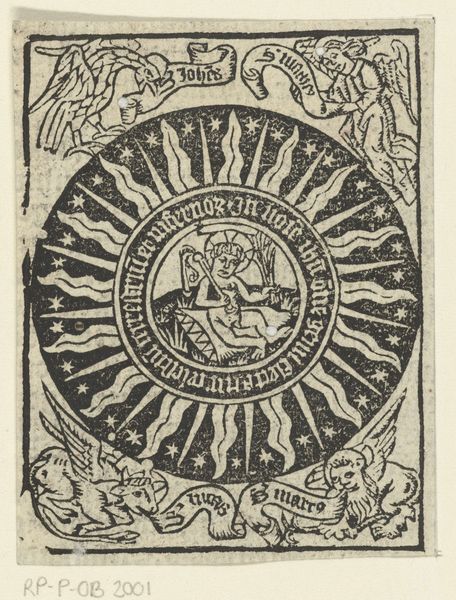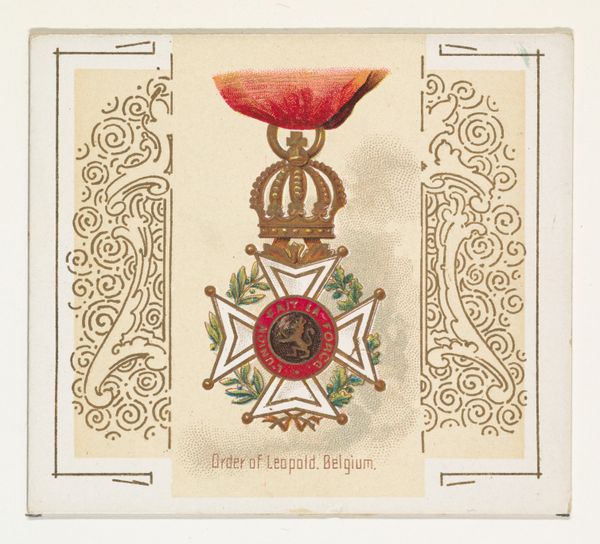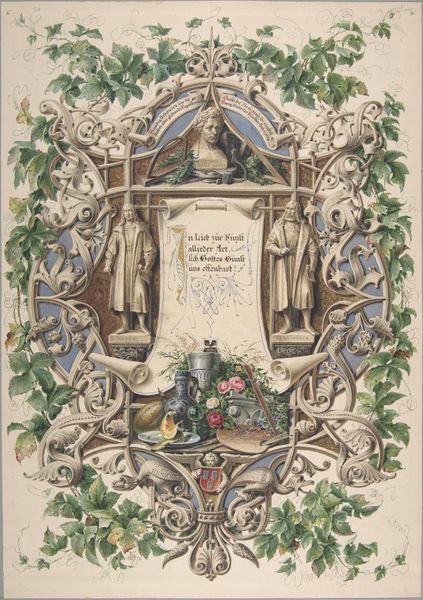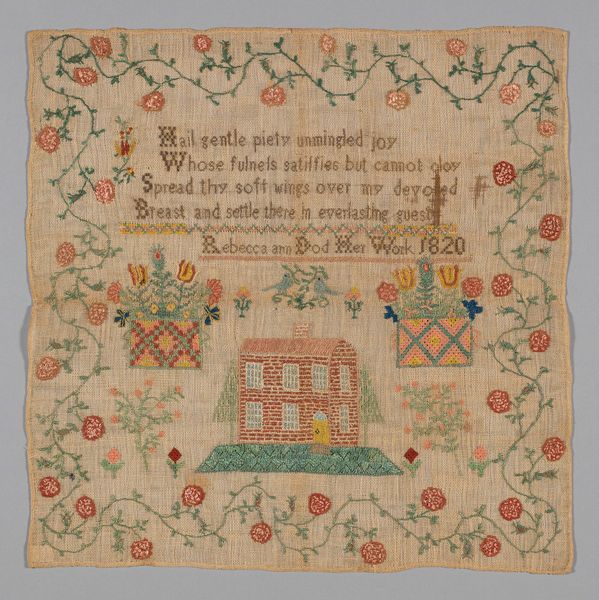
Passover pillow cover c. 19th century
anonymous
minneapolisinstituteofart
pigment, textile
natural stone pattern
naturalistic pattern
pigment
textile
wood background
pattern background
food illustration
organic pattern
france
wooden texture
pattern repetition
food photography
layered pattern
This anonymous 19th century Passover pillow cover, currently housed at the Minneapolis Institute of Art, showcases a traditional Hebrew text encircled by a vibrant wreath of flowers and birds. The central motif, a bowl overflowing with fruit, symbolizes abundance and prosperity during the holiday. The intricate embroidery, likely created by an anonymous artist, reflects the cultural significance of Passover within Jewish tradition. The artwork's vivid colors and delicate details make it a captivating example of decorative art with religious significance.
Comments
This cushion cover and towel set would have been used in an elite Jewish home in the Alsace region of eastern France to celebrate the Passover Seder. During the meal, it is customary for important individuals to eat reclining in imitation of sumptuous Roman feasts when elites ate reclining on sofas. This gesture issues a reminder of the time in Jewish history when they were liberated from their enslavement in Egypt, and is meant to inspire feelings of gratitude for the fruits of freedom. This cushion cover would have contained a large cushion that was placed on the chair back of the male head of household. The decorative towel would have been used to cover utilitarian towels used during the Seder hand-washing ceremonies.
Join the conversation
Join millions of artists and users on Artera today and experience the ultimate creative platform.

